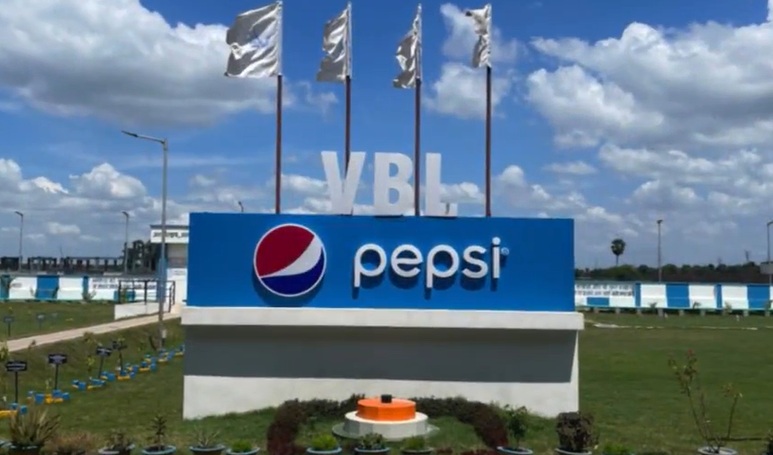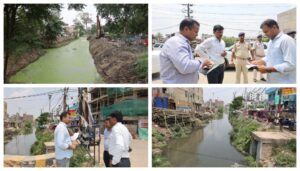Barauni’s Water Crisis: Villagers Accuse Pepsi Plant of Depleting Groundwater, Demand Closure

Begusarai: A major environmental controversy is brewing in Barauni, Begusarai, as villagers from seven surrounding villages have launched protests and a signature campaign against PepsiCo’s bottling facility, accusing it of drastically depleting groundwater levels in the region. The bottling plant, operated by Varun Beverages Pvt Ltd, is being blamed for a 20-foot drop in the water table within a 10–20 km radius over the last three years.
Local residents say hand pumps are running dry, submersible pumps are failing, and even drinking water has begun to smell — all of which they claim is due to the extraction of over 12 lakh litres of water daily from six operational borewells at the plant.
“Three years ago, water was available at 15 to 20 feet. Now it’s down to 40 feet. Our borewells are failing, and our children don’t even get clean water to drink,” said a protesting villager from Bathauli.
Signature Campaign Launched After No Government Action
Frustrated by the lack of response from authorities despite a year of protests, residents have now initiated a large-scale signature campaign, aiming to collect 10,000 signatures in the first phase to pressure the district administration to act. The plant, which was inaugurated by Chief Minister Nitish Kumar on April 15, 2022, was initially seen as a harbinger of industrial development. But locals say it has instead led to a crisis.
“We welcomed the plant thinking it would bring jobs and growth. Now we’re demanding it be shut down,” said Dr. Kundan Kumar, an environmentalist from Behat. “They claim to have planted 27,000 trees and built water recycling ponds on just 55 acres. That’s impossible without at least 263 acres. Their claims are misleading.”
Giriraj Singh Joins Chorus Against the Plant
Union Minister and local MP Giriraj Singh has added political weight to the protests.
“When Nitish Kumar inaugurated the plant, it was promised that water would be sourced from the Ganga and harvesting would be done. Neither is happening,” he told reporters.
“Farmers are struggling to irrigate their fields. Drinking water is scarce. The plant must be shut down if it’s harming people.”
PepsiCo Defends Operations, Claims Water Recharge
Plant official Manoj Kumar rejected the allegations, calling them “misconceptions.”
“We use about 2.5 lakh litres of water annually and recharge more than we consume,” he claimed. “We have installed meters to measure water depth, and that data is sent online. We are following the NOC condition that requires 50% water recharge. In fact, we recharge more”, he told Bhaskar newspaper.
PepsiCo also claims to have built two water recycling ponds and to be using advanced filtration systems to return filtered water to the ground.
Experts Call for Immediate Policy on Industrial Water Use
Geologist Dr. Ravikant Anand, Head of Geography at GD College, warned that Bihar’s groundwater is vulnerable due to its dependence on a short monsoon season.
“Rainwater harvesting alone won’t solve this. Industries drawing massive quantities of water must be regulated. If this trend continues, we will face a deep water crisis,” he said.
Plant’s Production and Controversial Legacy
According to Bhaskar newspaper report, Himanshu Thakur, HR head of Varun Beverages, the Barauni facility is the largest Pepsi bottling plant in Northeast India, with a production capacity of 16.22 million cold drink cases and 8.34 million packaged drinking water cases annually. Brands like Mirinda, Mountain Dew, and Seven Up are produced here.
However, critics point to similar shutdowns in Hardoi, Hajipur, and parts of South India, where Pepsi reportedly abandoned plants after depleting groundwater.
As the protests intensify and pressure mounts on state authorities, Barauni’s water battle is fast becoming a flashpoint in Bihar’s ongoing debate over industrial development versus environmental sustainability.





